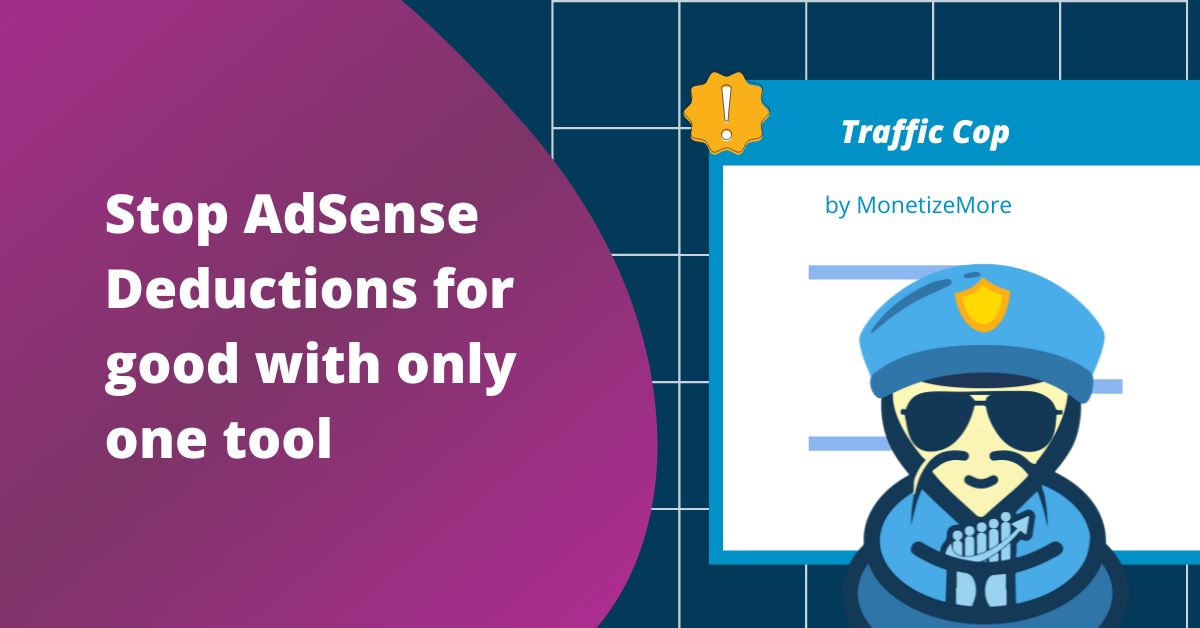
This post was most recently updated on January 18th, 2023
Have you ever experienced AdSense invalid traffic deductions? Chances are you have, even if you weren’t aware of it. It’s something every publisher works to minimize. Google makes invalid traffic deductions in real-time and during the finalization of earnings.
The reports AdSense publishers have access to in their AdSense dashboards only provide an estimate of ad revenue earned. At the end of the month, AdSense will make adjustments to earnings, make invalid traffic deductions and finalize earnings.
Your clawbacks will look something like the example below. If you had any invalid traffic deductions, it will also show.
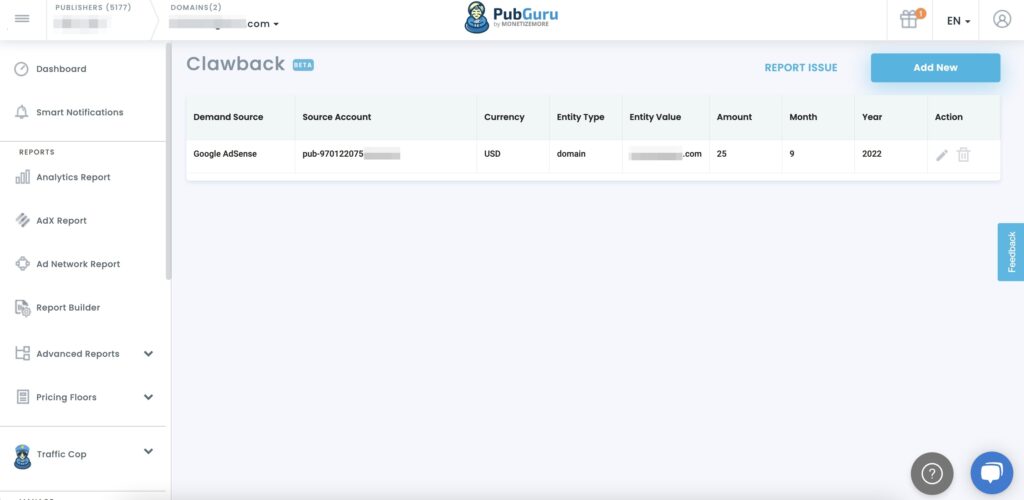
You can find out more about deductions AdSense makes and when they do so here.
If Google detects that your site is displaying ads to bots or other invalid traffic (IVT), it will deduct the amount of revenue that was generated from those impressions from your AdSense account balance. Although this may seem unfair, Google is only trying to protect its advertisers and users from being charged for ads that are not being seen by real people.
Google is constantly updating its algorithms to minutely detect invalid activity on your site and calculate AdSense deductions.
Wonder why your estimated AdSense earnings & your final paychecks don’t match? The significant deductions are due to policy violations and IVT on your site.
The deduction amount goes back to advertisers as spam clicks and invalid impressions compensation. Since Adwords advertisers pay per click for each impression, Google makes sure each click is bot-free. These reflect as Credits in the advertisers’ AdWords account. Google has always been an Advertiser-First business since day one.
All your AdSense deductions can be found in your AdSense Account dashboard and at MonetizeMore’s Pubguru dashboard at Finance > Clawbacks.
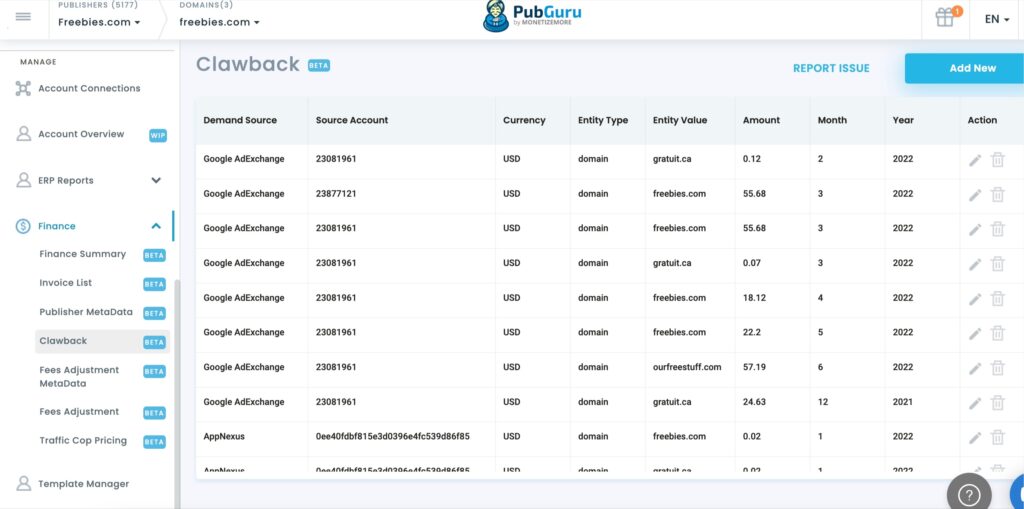
You’ll also notice a change in the final eCPM and will have to calculate the real eCPM by dividing your final balance by the number of impressions for that timeline X 1000.
Google is constantly upgrading its algorithm to detect sophisticated invalid traffic (SIVT) and spam clicks. With the rise of SIVT, most site traffic is flagged as invalid, even if it isn’t and publishers have seen AdSense deductions take up to 75% of their estimated earnings.
While SIVT can be a nightmare for anyone in the AdSense program, there are a few things you can do to ensure that your account doesn’t get flagged and your money doesn’t get taken away.
The first thing we recommend is to always stay on top of new Google updates and news about these algorithms.
MonetizeMore’s publishers use the award-winning Traffic Cop (IVT detection solution) to avoid AdSense deductions and bans so they don’t have to worry about this anymore.
Setting aside the entire “Google is out to get me!” theory for a moment (and we don’t want to imply that you should be paranoid about your account), we do agree that keeping track of AdSense deductions is very important to maintaining ad revenue.
Publishers with consistently high AdSense deductions (over 40%) should be concerned. The trend is not good and can cost a significant amount over time.
Fluctuations between 1%-5% in your AdSense earnings are normal and expected as you test different ad placements and advertiser campaigns on your site.
We’ve seen publishers get deductions of 30%-70% since 2020, and these were not spammy MFA (Made for AdSense) sites but high-quality websites which have been operating fine for years.
Using Google Analytics & Google Ad Manager to constantly audit your site for IVT and suspicious activity.
In case of an abnormal increase in traffic or spam clicks, contact Google here.
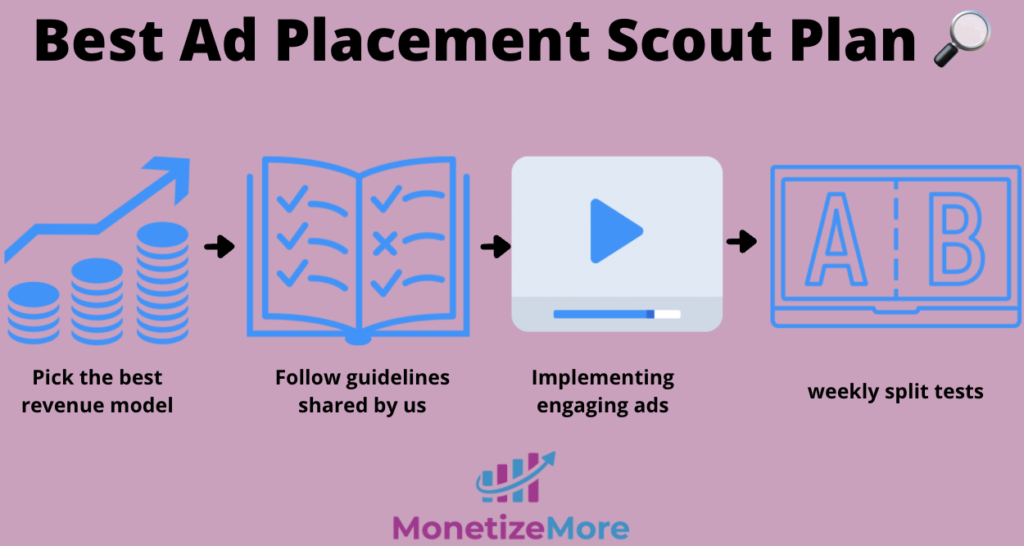
Bad Ad Layout and ad setups are the major reasons for invalid or accidental clicks.
The following Ad unit layout issues result in AdSense paycuts:
Once you fix these errors, you can see a significant drop in your upcoming AdSense Deductions statement. In case you need help fixing ad layout problems, IVT audits & reports, Contact us here.
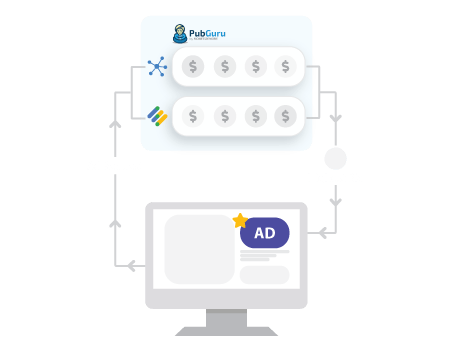
Why would you limit yourself to just AdSense?
Header bidding is a bidding process that allows you to use multiple demand sources for your inventory, which increases the revenue generated from each impression.
You get to access a broad range of ad demand and not solely rely on Google AdSense helping you diversify your advertising revenue.
Use header bidding to make sure that the highest bid wins, regardless of the source.
Learn more about header bidding here.
How to stop AdSense deductions with Header Bidding?
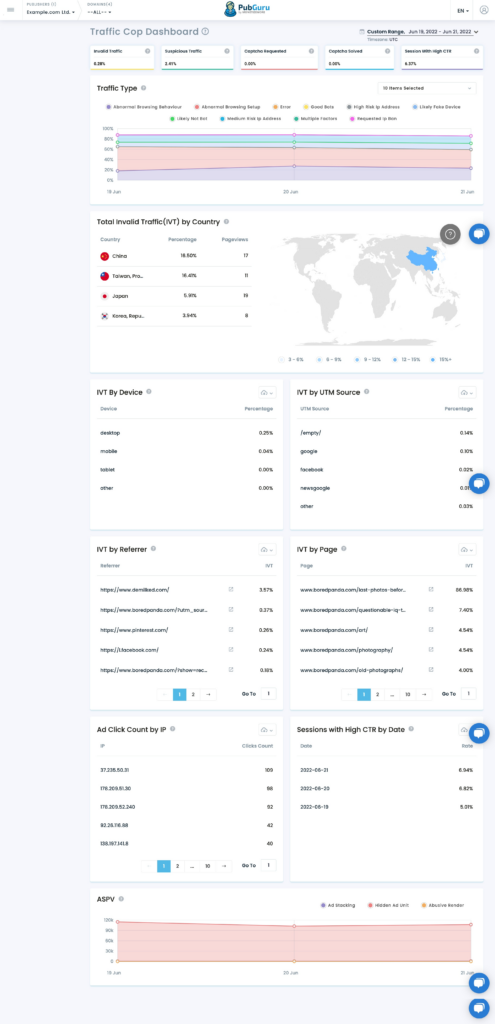
Conventional wisdom might give you some general explanation on how to use only trusted traffic sources, not to click on your own ads, and make sure your ads are placed in such a way that it results in accidental clicks. That’s all good and well, but that might not be enough.
What if the invalid traffic that lands on your site push you over the threshold Google is willing to accept and gets your AdSense account banned? If that happens, all the techniques mentioned above won’t matter at all.
Look, you need to have some kind of system in place that protects your ad account from invalid traffic. It’s the only way you can get ahead of future invalid traffic and protect your business.
With Traffic Cop, you can do just that! We’ve developed a tool that detects and protects your website from invalid traffic and minimizes invalid traffic deductions.
Traffic Cop uses machine learning and fingerprinting algorithms to detect invalid traffic and block it from viewing and clicking on your ads.
Are you ready to minimize AdSense invalid traffic deductions and protect your AdSense account from getting banned? Sign up to Traffic Cop today!

With over ten years at the forefront of programmatic advertising, Aleesha Jacob is a renowned Ad-Tech expert, blending innovative strategies with cutting-edge technology. Her insights have reshaped programmatic advertising, leading to groundbreaking campaigns and 10X ROI increases for publishers and global brands. She believes in setting new standards in dynamic ad targeting and optimization.
10X your ad revenue with our award-winning solutions.